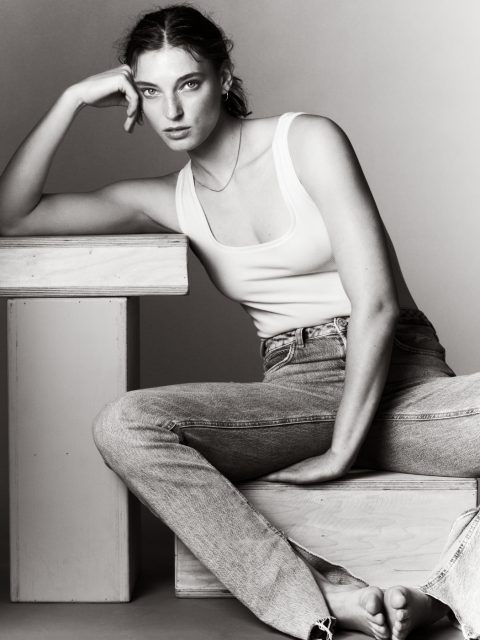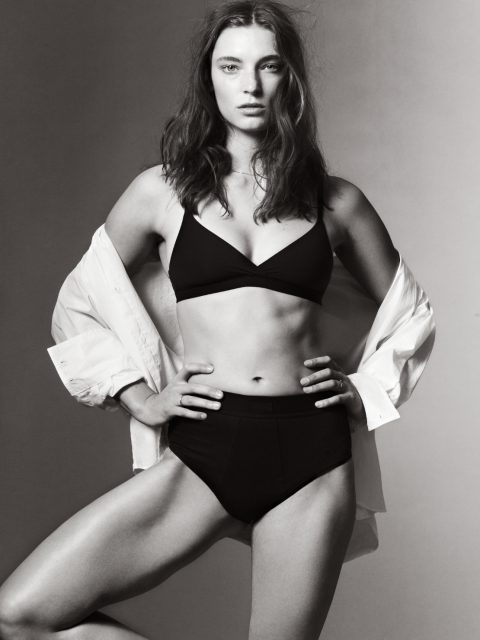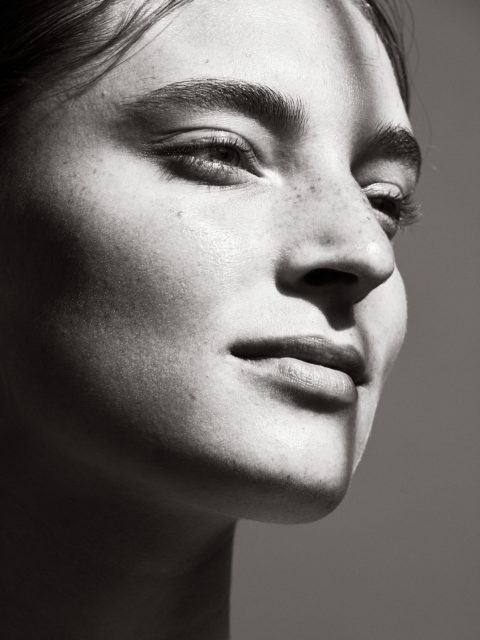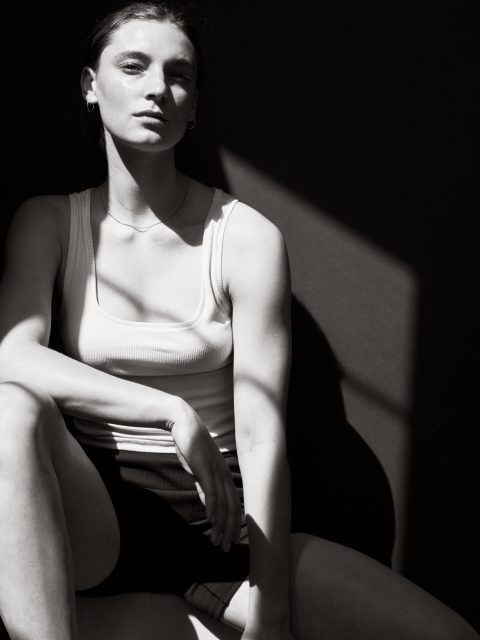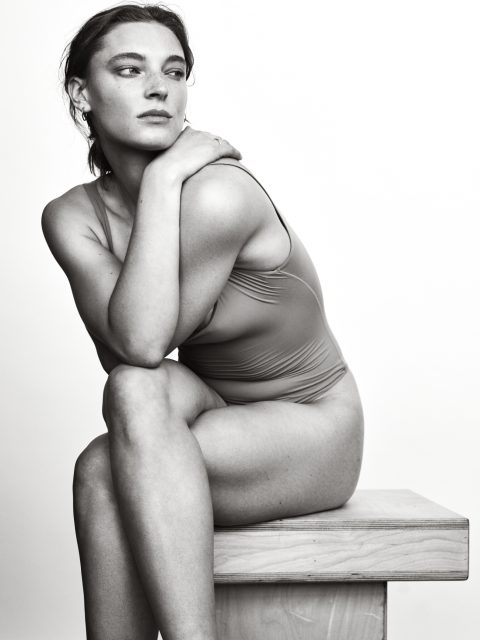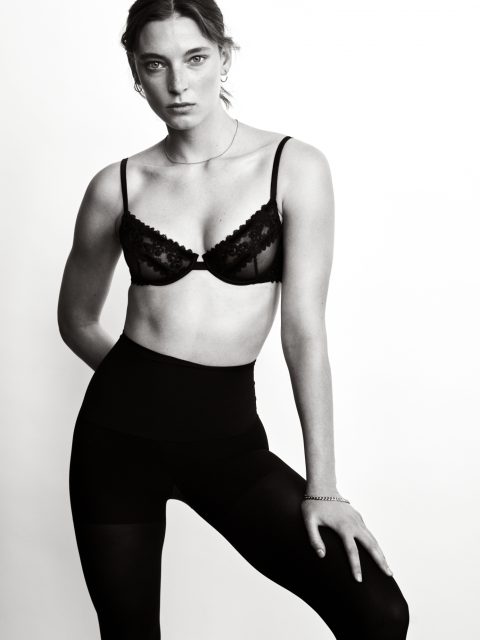
With this past year’s pandemic bringing extreme isolation and anxiety about the unknown future, understanding the importance of mental health is more essential than ever. 18.1% of Americans suffer from depression, schizophrenia, and/or bipolar disorder yet there has been little effort in truly addressing challenging triggers and reducing the stigma of mental health overall. Add the continued strain within fashion to evolve past the unneeded pressure of sample sizing–which often pushes models to extreme means to unnaturally lose weight, leading to eating disorders–and you have a mental health reckoning that cannot go unaddressed.
With Mental Health Awareness Month winding down, this year’s message of “You Are Not Alone” is set to remind global communities that we all experienced the last year together and the benefits of finding commonality. Models.com chose to highlight a few brave members of the model community about their personal stories with mental health and how the industry with its weekly weigh-ins and hyperfocus on body measurements adds to challenges. First is model Ansley Gulielmi, who breaks her silence on dealing with an eating disorder and severe anxiety due to the nature of the industry. Shot by Mikael Schulz and styled by Carolina Orrico, we spoke to Gulielmi on the steps she took to get back to being more healthy, reclaiming her career, and how the fashion industry directly contributes to the mental health challenges models face.
Photographer Mikael Schulz for Models.com
Stylist – Carolina Orrico
Features Editor – Irene Ojo-Felix
Assistant Editor – Anire Ikomi
Hair – Rita Marmor
Makeup – Linda Gradin
Behind The Scenes Director – Désiré Mia
Special thanks to Julien Miachon at HEROES Model Management (New York)
How were you first discovered and what have been memorable experiences in your career so far?
I was encouraged by a family friend to go to an open call at a Chicago-based agency in 2015, walked out of their office that day with a contract, and got the ball rolling from there. There is a myriad of memorable experiences in my career, none the least of which was moving to NYC at 17-years-old, dancing with Butoh dancers and watching sumo wrestlers fight in Japan, and my mom waiting outside of fashion shows for me ready to buzz off to the next show. I love immersing myself in the city of my stay, and even for just a day, tasting and experiencing what that city offers. I am so thankful for my many fruitful experiences and adventures.
You have shared that in the past, you had an eating disorder and anxiety due to the nature of the industry. How have you been able to overcome/grow from these challenges?
Meditation and mindfulness help me with anxiety, as well as making to-do lists and being organized. As far as overcoming the ED, what really helped me the most was talking about it very honestly with a specialized therapist and attending group therapy. Hearing other girls share similar stories made me feel like I was not alone. It also gave me the courage to share my own story fearlessly. Understanding my triggers and how to deal with them in a safe way has been a big help. Finding a trusted nutritionist and dietitian helped me understand how to properly fuel my body again. Lastly, seeking balance in my mind, body, and soul.
How have you been able to practice wellness and grounding in such a fast-paced industry?
Having a support system and a trusted team to call on is essential. You need people you can rely on when going gets tough. In practicing wellness, I have several tools I incorporate into my daily/weekly routine such as journaling (particularly journal prompts, reflecting), expressing gratitude, yoga, meditation/mindfulness exercises, walks in nature, therapy, setting boundaries, reading, and practicing non-attachment. Through my little habits and rituals, I am able to dial it all back. The internal quiet-time I carve out for myself is essential in my healing, and it refills my reservoir of energy within.

Bra – ERES
What parts of the fashion industry contribute to mental health challenges and what do you think needs to change?
Many things contribute to mental health challenges in this industry. For example, the moments of deep doubt in the downtime, crazy sporadic travel schedules, lack of sleep or proper nutrition on the road, constantly being told you’re not this or that enough, being judged by those in control of your career and future, giving up your life to do this and not know how long it’s going to last. The immediacy for perfection can be crippling. Nevertheless, there are people out there that are willing to listen and truly wish to see you succeed. A grand shift occurred in my career and well-being when I signed with Heroes Model Management. My supportive team of agents taught me that things get better, people do care and will work hard with you and for you.
I see positive changes taking place right now in terms of diversity. I love to see the representation. It has been hard to manage young models, when their only experience in life prior to working in a very adult world, has been high school. We need more protection, guidance, and recourses for young girls. I love to see what the Model Alliance is doing right now in advocating for young models, promoting fair treatment, and providing a safe place for open communication.
How can the industry provide more resources to young models?
Allow people space to grow and come into their own, especially the young ones. A bit of grace as their young bodies change. A safe space for honest communication is essential. Financial transparency and helping people understand what happens with their money should be practiced more so as to not make people feel in the dark about how their money is being handled. And lastly, when it comes to the body (which can be confusing and often personal) put said model in contact with a trusted nutritionist or dietitian. Someone who understands the human body, proper nutrition, and how to fuel the body adequately and safely.
Why was it important for you to be transparent about your challenges as a model?
Because I am not alone. I used to feel that way, but in talking about it openly, sharing my story, and hearing other people share theirs, a cumbersome weight was lifted off my shoulders that once weighed me down for years.
In sharing my story, my struggles, being vulnerable, and speaking from experience, others will hear my story and feel less alone. If I could use my reach to make at least one person feel less alone, I have done my service. We need to end the stigma. It is okay to not be okay. Mental disorders are not a choice. We need to talk about these things openly.
What advice would you give to up-and-coming models who are trying to adhere to unrealistic beauty standards?
Do not try so hard to fit yourself into a cookie-cutter mold of what everyone else thinks is beautiful or right. Find 30 beautiful things about you that have nothing to do with your body. Nourish and move your body in healthy ways. Cultivate a strong inner trust. Learn to become best friends with yourself. Find what sparks your soul and chase it until the fire burns out.

Tank – FRAME
If you could give yourself one piece of advice when you first started off, what would it be and why?
Don’t be afraid to stand up for yourself. Don’t be afraid to speak up when you’re uncomfortable or when you feel in the dark. Trust yourself more, and know that all your questions may be answered within.
